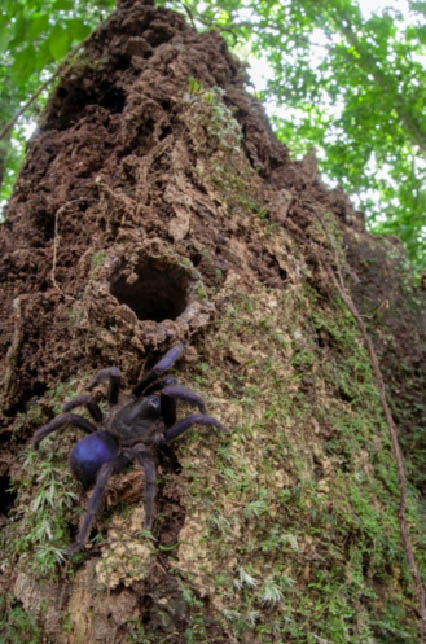A World Wildlife Fund (WWF) expedition to the Upper Potaro region earlier this year has uncovered over a dozen species possibly new to science and researchers have warned that mining activities could pose risks to the biodiversity of the region.
As many as 19 species recorded during the expedition including dragonflies, fishes, aquatic beetles and a tarantula are likely to be new to science, researchers said presenting their preliminary findings at Moray House, Camp Street yesterday. The WWF initiated and coordinated the expedition which was done in March and covered areas in the Upper Potaro and the Kaieteur National Park (KNP).
The expedition sought to establish baseline biodiversity data for the mid and highlands areas in the Kaieteur plateau to inform decision making for sustainable land use planning in the region. Over 500 species, including more than a dozen that are likely new to science were identified. Lab analysis is currently being conducted to confirm these findings.
A statement from the WWF said that aside from pockets of mining and the associated impacts on aquatic

